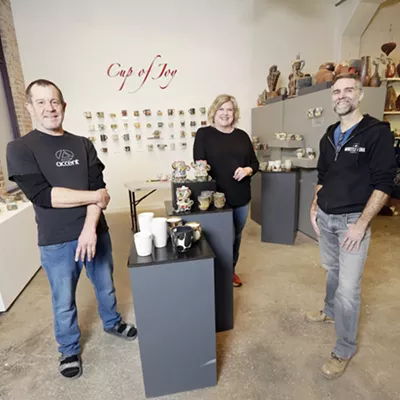Is there anyone out there who doesn't like Back to the Future?
Thirty-five years ago this month, Robert Zemeckis' quirky sci-fi comedy hit theaters and announced itself as one of the greatest summer blockbusters in history, spawning sequels, video games, comic books and theme park rides. It's the type of movie that always seems to be playing on cable, and that you stop to watch every time.
It's the story of high schooler Marty McFly (Michael J. Fox), a rock 'n' roll-loving, skateboarding slacker who discovers the friendly neighborhood mad scientist Doc Brown (Christopher Lloyd) has made a time machine out of a DeLorean. It works, sending Marty hurtling back to 1955, where he has to orchestrate his parents meeting and falling in love, thereby ensuring he still exists in 1985.
Everybody knows that, but Back to the Future's status as a beloved cultural icon wasn't always cemented. Production on Future began in late 1984 with the role of Marty played by Eric Stoltz, then best known for small roles in teen comedies like Fast Times at Ridgemont High and The Wild Life. Just a couple weeks into filming, Zemeckis realized Stoltz was wrong for the part, replacing him with Family Ties star Michael J. Fox, who was Zemeckis' initial choice for the part.
It was this kind of production hiccup, as well as special effects tinkering that continued a week before the film's release, that gave Universal Studios skepticism about the film. Even the title was up for debate: Universal head Sid Sheinberg suggested it be called Spaceman from Pluto instead, though executive producer Steven Spielberg, who had far more faith in the project, shot it down.
Back to the Future ended up grossing $391 million worldwide against a $19 million budget (that's the equivalent of $45 million in 2020 dollars), making it the highest grossing film of the year and beating out other financial hits like Cocoon, The Goonies and two huge Sylvester Stallone vehicles (Rambo: First Blood Part II and Rocky IV). The success of Future pointed Zemeckis' career in the direction of groundbreaking special effects (Who Framed Roger Rabbit, Death Becomes Her, Forrest Gump), as well as the two Future sequels, which were both considerable hits but couldn't overshadow their predecessor. The first Future is still the best.
There aren't many movies that I'd deign to call perfect, but I'm willing to go out on a limb and say Back to the Future is a perfect movie. I'm gonna nitpick it anyway.
Cultural appropriation aside, it's weird how Marty plays "Johnny B. Goode" to an enthusiastic '50s audience who'd never heard it, and how Chuck Berry apparently hears a snippet of it over a backstage phone and goes on to write that very same song. It's also hilarious, in retrospect, that Marty is supposed to be the coolest guy around while spending most of his free time with some paranoid middle-aged scientist. John Mulaney even has a stand-up bit about it: "Marty McFly is a 17-year-old high school student whose best friend is a disgraced nuclear physicist ... and we were all fine with it."
And then there's the running threat of incest, a surprisingly edgy element for a PG-rated comedy to take on. Marty is constantly avoiding the advances of his own mother, who comes on to him in such a strong way that it's genuinely disturbing. There's no way a subplot like that would make it past the screenplay stage these days.
Back to the Future is also a distinctly '80s artifact, as much a Gen X touchstone as it is a baby boomer fantasy. It's a fascinating reflection of the Reagan-era mindset: Its vision of the 1950s is as a predominately white utopia, where every front lawn is perfectly manicured and the countertops in every neighborhood malt shop gleam.
But I think it's so easy to quibble with it because it's so ubiquitous: We've been able to overthink it because it always seems to be there. And there's a reason for that. Rewatching Back to the Future for what felt like the billionth time the other night, I was reminded all over again how fresh and funny it is, how ingeniously plotted, how feverishly paced. It's fitting that the film's climax involves a clocktower, because it's as well-oiled and intricately constructed as a Swiss watch.
Yes, it is very much of its time, but it is nonetheless timeless. ♦























